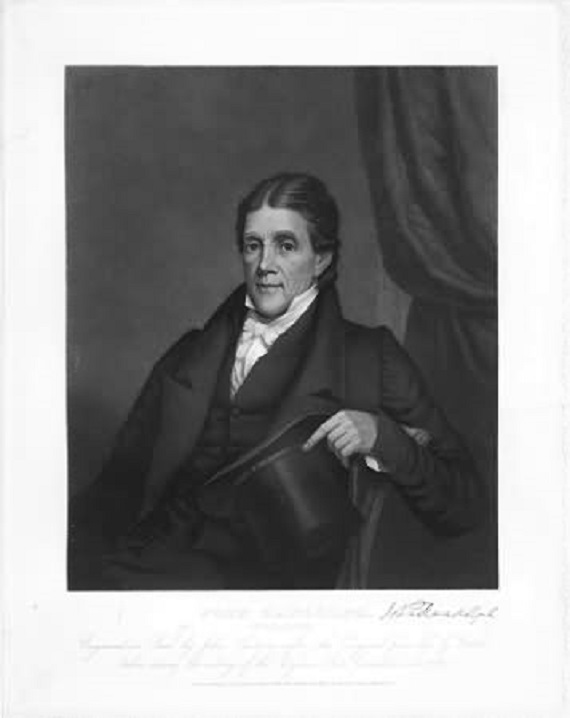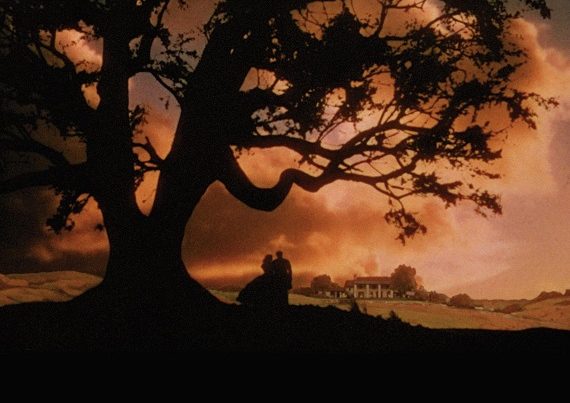There is no more singular statesman or person in the history of American politics than John Randolph of Roanoke. Eccentric in the extreme, volatile, and often ill-tempered, this Saint Michael of the South, this scourge of corruption, was also capable of passionate attachments to his friends, his slaves, and his country, that is Virginia. The same man whose piercing gaze and biting sarcasm held the House of Representatives in fear and awe could be seen at other times in that same chamber nursing back to health a sick puppy. Randolph the admirer of Edmund Burke’s conception of society ordered by prescription, custom, and tradition was at the same time the descendant of Pocahontas, a self-confessed wielder of tomahawk and knife in the battles he fought on the floor of the Congress. The stories and legends surrounding Randolph are legion, he once said that all of the bastard wit of the country was attributed to him as his progeny, and many others have dealt in great detail with the legend that enfolds the man. I, however, wish to speak of his profound effect upon the course of history.
John Randolph was born on June 2, 1773 at Cawsons, Virginia. He was descended from two very prominent families, his mother was a Bland and a direct descendant of Pocahontas, and he served for many years as a representative in the House of Representatives, and did short stints in the Senate and as the Jackson administration’s minister to Russia. Early in his career Randolph was the floor leader for the Republicans in the House, the chairman of the powerful Ways and Means Committee, and a trusted advisor of President Thomas Jefferson. Randolph later broke with Jefferson over the Yazoo fraud case, his enmity toward the Jefferson administration only increased during the years of the Embargo Act and non-intercourse policies. Randolph led a small but influential opposition on the House floor, the Tertium Quids, who were eventually overshadowed by the War Hawks. Still Randolph continued his course of bitter opposition: opposition to the War of 1812, opposition to the re-chartering of the Bank of the United States, opposition to tariffs, internal improvements, and public debt, opposition to entanglements in Greece and Latin America, opposition to any centralizing tendency on the part of the federal government. A frustrated Daniel Webster once asked in a comment directed at Randolph if statesmanship must always be expressed in the negative, if all proposed projects must receive the answer “no?” Randolph characteristically replied, “Yes.”
A critic may reasonably ask of Randolph if there is anything he supported, anything worthy of his “yes”. There was. In a speech delivered on the floor of the House during the War of 1812, Randolph laid out his, and the Old Republican political creed,
“Love of Peace, hatred of offensive war, jealousy of the state governments to the general government, a dread of standing armies, a loathing of public debt, taxes, and excises, tenderness for the liberty of the citizen; jealousy, Argus-eyed jealousy, of the patronage of the President.”
These were of course the principles of 1776, of 1798, and of the Jeffersonian Revolution of 1800, of truly republican peoples everywhere, and in our history Americans have found them hard. Randolph was only too prophetic when he asserted that, “the people of this country, if ever they lose their liberties, will do it by sacrificing some great principle of government to temporary passion.” One by one the Old Republican principles were sacrificed to many and varied “temporary passions.” Randolph placed very little faith in laws and law making, he was a champion of what we call gridlock. Law making would be aimed at compromising and diminishing the great principles of republican government, thus Randolph hoped for a Congress just a little smaller than a mob where endless debate was the menu du jour, every day. “. . . give me fifty speeches, I care not how dull or stupid, rather than see one law on the statute book.” Talk and “speechifying” was the cure for passionate and rash action.
Given his high principles, it was a supreme irony that Randolph stooped to political means to attempt to preserve the republican agrarian society he loved so dearly. Many Southerners, as much as other American, where in Randolph’s view a “fudgitical” and fussy people, never quite content to leave well enough alone. They were swayed by the whippoorwill cry of “Canada, Canada, Canada!” to be piped into war in 1812, and swayed as well by the promise of national banking, internal improvements and all the rest of the centralist’s brew. When Randolph could not convince his “fellow slaveholders” of the dangers that federal consolidation posed for the South, he had no qualms about playing the slave card. Randolph’s views on slavery might be best described as passionately ambivalent.
On the one hand Randolph had severe doubts about slavery and he detested the slave trade, supporting its abolition in the District of Columbia, and he opposed South Carolina’s reopening of the slave trade in 1804. During his life, Randolph taught many of his slaves to read and write, as well as encouraging them to acquire skills in the trades. Upon his death his estate provided for both manumission for his slaves, and funding to establish a farming community in Mercer County, Ohio. (They were driven off of these farms not by the white citizens of Mercer County to other parts of Ohio.) The abolitionist poet, John Greenleaf Whittier captured well this one aspect of Randolph’s character regarding slavery,
He held his slaves; yet kept the while
His reverence for the Human;
In the dark vassals of his will
He saw but Man and Woman!
No hunter of God’s outraged poor
His Roanoke valley entered;
No trader in the souls of men
Across his threshold ventured.
Of course, there were also others who dared not enter his Roanoke Valley, among them members of the abolitionist faction which Randolph detested.
On the other hand Randolph was also convinced that white and black could not live in the same society without one group subjugating the other—he consistently played upon the fears southerners had of servile insurrections in his opposition to the War of 1812, and any other policy that enhanced the powers of the federal government. In his speech opposing internal improvements in 1824 he warned his fellow representatives that if they found a clause in the constitution to justify the construction of internal improvements, be it in the war making power, the commerce clause, the general welfare clause, or perhaps the all of these together, then the institution of slavery would be at grave risk. Loose construction would not end at internal improvements; it would invade into the very lives and homes of the citizenry. Randolph hoped to use the slave card to awaken his fellow southerners to the danger of an encroaching federal government on the agrarian society of the South. It was an important first step that led down the road to the acrimonious and heated debates over slavery in the 1850s. It was easier to excite people, North and South, over federal regulation of slavery than to awaken them to the dangers of economic and political consolidation. Randolph married the issues and with predictably violent results.
But what of our day? Both slavery and the agrarian society have been swept aside by the tides of time. Capital and political power are consolidated as never before, and now more than half of the population of America has some level of dependency upon the federal government. Randolph warned of this, the consolidation of political and economic power was always the dread specter all true Jeffersonians were pledged to oppose, and he tried with all his might to strangle the monster in its cradle. Randolph of Roanoke also shows us the way out. This road is not easy and it will demand of us fortitude, prudence, temperance, and justice—for it is a road that our enemies do not wish to take—it fills them with fear and loathing. What is this road pray tell? It is this,
“Love of Peace, hatred of offensive war, jealousy of the state governments to the general government, a dread of standing armies, a loathing of public debt, taxes, and excises, tenderness for the liberty of the citizen; jealousy, Argus-eyed jealousy, of the patronage of the President.”







